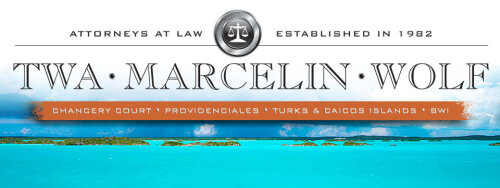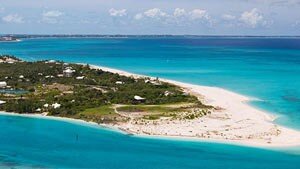Best Banking & Finance Lawyers in Providenciales
Share your needs with us, get contacted by law firms.
Free. Takes 2 min.
List of the best lawyers in Providenciales, Turks and Caicos Islands
About Banking & Finance Law in Providenciales, Turks and Caicos Islands
Banking and finance law in Providenciales, Turks and Caicos Islands plays a critical role in the territory's economy, ensuring both residents and international investors can access robust and reliable financial services. The legal framework regulates banks, financial institutions, credit providers, and other market participants, aiming to maintain integrity, combat financial crime, and promote commercial growth. Providenciales, being the business and tourism hub of the Turks and Caicos Islands, has a dynamic financial sector that caters to a diverse client base, including private individuals, corporations, and international investors. Local law is influenced by British legal heritage but has unique provisions tailored to the territory's economic structure and goals.
Why You May Need a Lawyer
Engaging a lawyer with expertise in banking and finance can be vital in a range of scenarios. Common situations include:
- Opening, closing, or managing business accounts with local or international banks
- Securing loans or mortgages for property purchase or investment
- Negotiating or reviewing banking agreements and loan documentation
- Navigating disputes with financial institutions, such as unauthorized transactions or account freezes
- Structuring or restructuring corporate finance arrangements
- Ensuring compliance with anti-money laundering and counter-terrorist financing regulations
- Understanding tax implications related to banking and financial transactions
- Advising on the transfer of funds internationally
- Representation in regulatory investigations or enforcement proceedings
A knowledgeable lawyer can help you protect your interests, avoid costly errors, and ensure compliance with local laws.
Local Laws Overview
The Turks and Caicos Islands uphold a modern legal framework for the regulation of banking and finance. Here are several key aspects:
- Financial Services Commission (FSC): The FSC is the main regulator for banking, insurance, and related financial industries. It issues licenses, supervises entities, and enforces compliance with local law.
- Banking Ordinance: This sets out the requirements for banks operating in Providenciales, including capital standards, customer due diligence, and reporting obligations.
- Anti-Money Laundering (AML) Regulations: Both businesses and individuals must comply with robust AML rules to prevent illicit activities. This involves verification of client identity and reporting of suspicious activities.
- Foreign Exchange Control: While the economy is largely open, some controls exist regarding large transfers and currency movements.
- Consumer Protection: The law provides several safeguards for bank customers, such as transparency in fees, fair lending practices, and recourse for complaints.
- Data Protection: Financial institutions must safeguard client data and comply with privacy legislation.
Legal requirements may change, so seeking up-to-date advice is essential.
Frequently Asked Questions
What types of banks operate in Providenciales?
Both local and international banks operate in Providenciales. The territory hosts established financial institutions that cater to personal, business, and private banking needs.
Can non-residents open a bank account in Providenciales?
Yes, non-residents can open accounts subject to meeting the bank's due diligence and AML documentation requirements. This process may take longer for overseas applicants.
What documents are needed to open a bank account?
Typically, you will need a valid passport or government-issued ID, proof of address, source of funds evidence, and, for businesses, company documents such as the certificate of incorporation.
Are bank deposits insured?
The Turks and Caicos Islands do not currently operate a formal deposit insurance scheme. It is advisable to assess the stability and reputation of a bank before depositing significant funds.
Is the US Dollar accepted or used by banks?
Yes, the US Dollar is the official currency of the Turks and Caicos Islands, and all banking transactions are conducted in USD.
How are mortgages and loans regulated?
Banks and lenders must adhere to the Banking Ordinance and consumer protection legislation, which includes requirements for transparent terms and responsible lending practices.
What are the main anti-money laundering obligations?
Banks must conduct customer due diligence, verify identities, monitor transactions, and report suspicious activity to the relevant authorities in line with local AML legislation.
Can I transfer large sums abroad without restrictions?
While there is freedom of capital movement, some reporting requirements or regulatory approvals may apply for large transactions to ensure compliance with AML and tax laws.
How do I resolve a dispute with a bank?
Initial steps include filing a complaint directly with the bank. If unresolved, you may refer the matter to the Financial Services Commission or pursue legal action through the courts.
Are offshore companies allowed to open accounts?
Yes, offshore entities can open accounts, subject to stringent due diligence process and regulatory approval to ensure compliance with international financial standards.
Additional Resources
If you require further information or support, consider the following resources:
- Financial Services Commission (FSC): The regulator for banking, insurance, and investment matters in the Turks and Caicos Islands.
- Chamber of Commerce: Provides business support and information on financial matters for local and foreign investors.
- Turks and Caicos Islands Government - Ministry of Finance: Offers guidance on fiscal policy, tax, and public financial information.
- Local Banks and Financial Institutions: Customer service teams can help with account set-up, product information, and complaints processes.
- Legal Aid and Bar Association: For help finding licensed lawyers specializing in banking and finance law.
Next Steps
If you need legal assistance involving banking and finance in Providenciales, consider taking the following steps:
- Identify your specific needs - whether personal, corporate, transactional, or regulatory
- Gather relevant documents such as contracts, correspondence, financial statements, and identification
- Contact a lawyer or legal firm with experience in banking and finance in the Turks and Caicos Islands
- Schedule a consultation to discuss your matter in detail and understand potential solutions or risks
- Follow through with any recommendations, such as filing documents, negotiating with institutions, or initiating legal proceedings
Timely legal advice can help safeguard your interests, ensure compliance, and resolve issues efficiently in the evolving financial landscape of Providenciales and the wider Turks and Caicos Islands.
Lawzana helps you find the best lawyers and law firms in Providenciales through a curated and pre-screened list of qualified legal professionals. Our platform offers rankings and detailed profiles of attorneys and law firms, allowing you to compare based on practice areas, including Banking & Finance, experience, and client feedback.
Each profile includes a description of the firm's areas of practice, client reviews, team members and partners, year of establishment, spoken languages, office locations, contact information, social media presence, and any published articles or resources. Most firms on our platform speak English and are experienced in both local and international legal matters.
Get a quote from top-rated law firms in Providenciales, Turks and Caicos Islands — quickly, securely, and without unnecessary hassle.
Disclaimer:
The information provided on this page is for general informational purposes only and does not constitute legal advice. While we strive to ensure the accuracy and relevance of the content, legal information may change over time, and interpretations of the law can vary. You should always consult with a qualified legal professional for advice specific to your situation.
We disclaim all liability for actions taken or not taken based on the content of this page. If you believe any information is incorrect or outdated, please contact us, and we will review and update it where appropriate.
Browse banking & finance law firms by service in Providenciales, Turks and Caicos Islands
Providenciales, Turks and Caicos Islands Attorneys in related practice areas.









